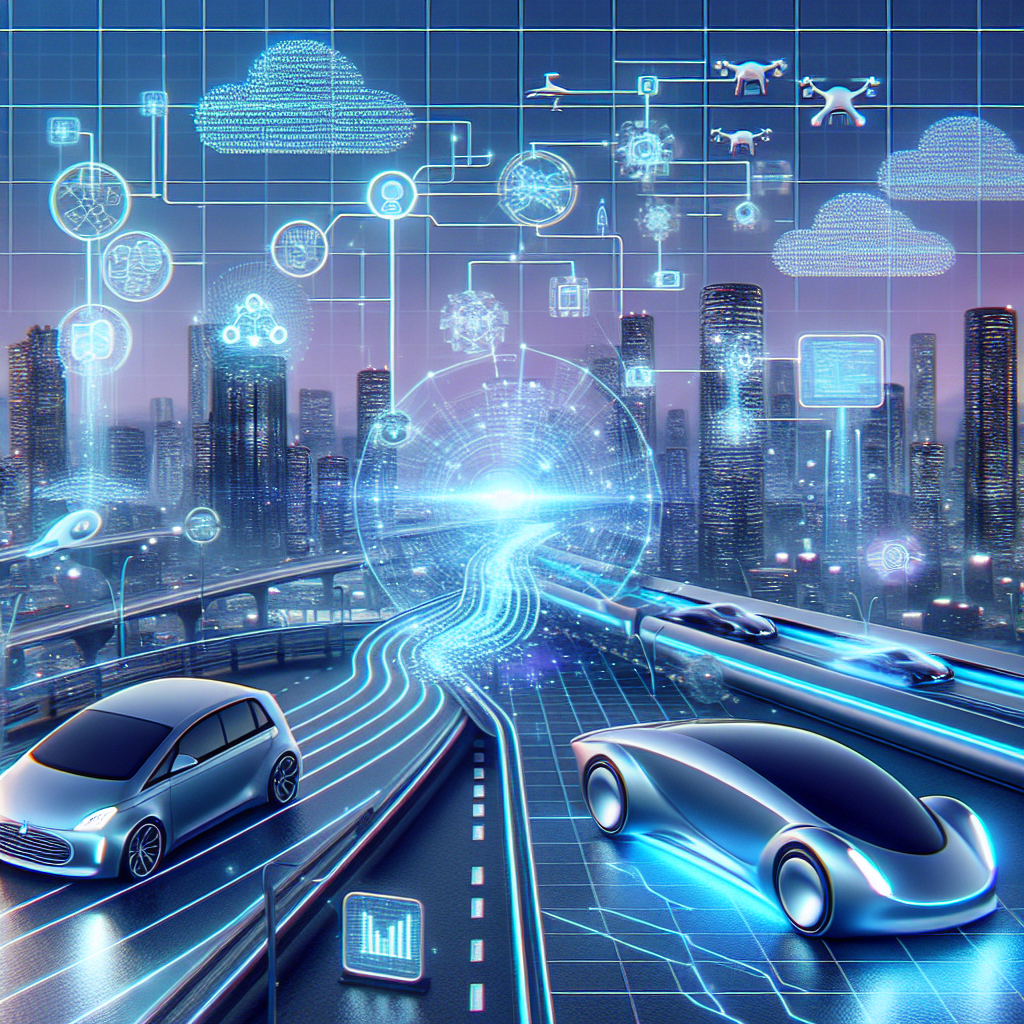Artificial intelligence (AI) platforms are revolutionizing the transportation industry, offering innovative solutions to improve efficiency, safety, and sustainability. From autonomous vehicles to predictive maintenance systems, AI is reshaping the way we think about transportation. In this article, we will explore how AI platforms are transforming the future of transportation and what we can expect in the coming years.
AI platforms in transportation have the potential to significantly reduce traffic congestion, improve road safety, and enhance the overall passenger experience. By leveraging AI technologies such as machine learning, computer vision, and natural language processing, transportation companies can gather and analyze vast amounts of data to make informed decisions in real-time.
One of the most prominent applications of AI in transportation is autonomous vehicles. These self-driving cars use AI algorithms to navigate roads, detect obstacles, and make decisions like human drivers. Companies like Tesla, Google, and Uber are investing heavily in autonomous vehicle technology, aiming to make transportation safer, more efficient, and accessible to all.
AI platforms also play a crucial role in optimizing traffic flow and reducing congestion. By analyzing real-time traffic data, AI systems can predict traffic patterns, adjust traffic signals, and reroute vehicles to minimize delays. This not only improves the overall traffic experience but also reduces fuel consumption and greenhouse gas emissions.
Another area where AI platforms are making a significant impact is in predictive maintenance. By monitoring vehicle performance data in real-time, AI systems can detect potential issues before they become major problems, allowing transportation companies to schedule maintenance proactively and avoid costly breakdowns. This not only improves operational efficiency but also extends the lifespan of vehicles and reduces maintenance costs.
In addition to improving efficiency and safety, AI platforms are also helping transportation companies enhance the overall passenger experience. For example, AI-powered chatbots and virtual assistants can provide real-time information on routes, schedules, and fares, making it easier for passengers to plan their journeys. In-vehicle AI systems can also personalize the passenger experience by adjusting temperature, lighting, and entertainment options based on individual preferences.
Furthermore, AI platforms are playing a crucial role in promoting sustainability in transportation. By optimizing routes, reducing idling times, and promoting shared mobility services, AI systems can help reduce fuel consumption, emissions, and overall environmental impact. This is particularly important as cities around the world strive to reduce air pollution and combat climate change.
Looking ahead, the future of transportation will be increasingly shaped by AI platforms and technologies. As autonomous vehicles become more prevalent, we can expect to see a shift towards on-demand, shared mobility services that are safer, more efficient, and more sustainable. AI-powered transportation networks will enable seamless integration of various modes of transportation, including electric vehicles, public transit, and bike-sharing services, creating a truly interconnected and efficient transportation ecosystem.
FAQs:
Q: How do AI platforms improve safety in transportation?
A: AI platforms in transportation use advanced algorithms to detect and respond to potential safety hazards in real-time. By analyzing data from sensors, cameras, and other sources, AI systems can predict and prevent accidents, reducing the risk of injuries and fatalities on the road.
Q: Are autonomous vehicles safe?
A: While autonomous vehicles are still in the testing phase, studies have shown that self-driving cars have the potential to be safer than human drivers. Autonomous vehicles are equipped with advanced sensors and AI algorithms that can react faster and more accurately to potential hazards on the road.
Q: How do AI platforms impact the job market in transportation?
A: While AI platforms have the potential to automate certain tasks in transportation, such as driving or scheduling, they also create new job opportunities in areas like data analysis, software development, and maintenance. The transportation industry is evolving, and new skills and roles will be needed to support the adoption of AI technologies.
Q: What are some challenges of implementing AI platforms in transportation?
A: One of the main challenges of implementing AI platforms in transportation is the need for extensive data collection and processing. AI systems require large amounts of data to train and operate effectively, which can be a logistical and technical challenge for transportation companies. Additionally, ensuring the security and privacy of sensitive data is another key challenge that needs to be addressed.
In conclusion, AI platforms are transforming the future of transportation by improving efficiency, safety, and sustainability. From autonomous vehicles to predictive maintenance systems, AI technologies are reshaping the way we think about transportation and paving the way for a more connected and sustainable transportation ecosystem. As we continue to innovate and integrate AI into our transportation systems, we can expect to see significant advancements in how we move people and goods from one place to another.

